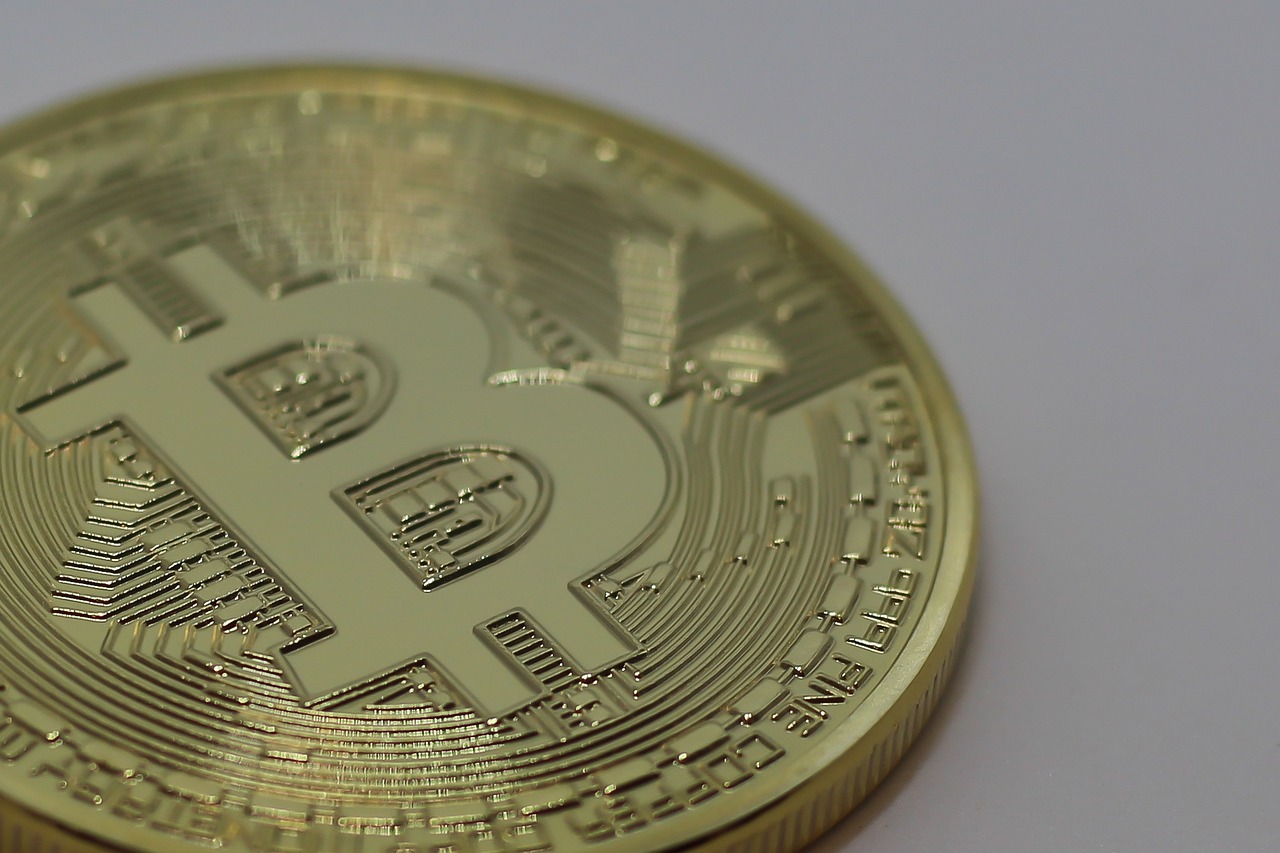Are Sudden Wealth and Ethical Decisions at Odds?
Sudden wealth can feel like winning the lottery, but it often comes with a hefty price tag—an avalanche of ethical dilemmas. Imagine waking up one day to find your bank account overflowing with cash; it sounds like a dream, right? However, this newfound fortune can turn into a double-edged sword, challenging your personal values and social responsibilities. So, are sudden wealth and ethical decisions truly at odds? This article dives deep into the intricate relationship between unexpected riches and the moral choices they compel us to make.
When individuals experience a windfall, they often find themselves in a whirlwind of emotions. On one hand, there’s the exhilarating rush of financial freedom, the ability to indulge in luxuries previously out of reach, and the chance to fulfill lifelong dreams. On the other hand, this sudden influx can lead to feelings of anxiety and guilt, as the weight of societal expectations bears down on them. It's a bit like being handed the keys to a shiny new sports car—exciting, yet daunting when you consider the responsibility that comes with it. How do you navigate this new terrain without losing sight of who you are?
Ethical dilemmas become more pronounced as individuals grapple with their responsibilities to themselves and to society. For instance, should they prioritize personal gain, or is it their duty to give back to the community that supported them? This conflict often manifests in the tension between philanthropy and self-indulgence. Wealthy individuals might find themselves asking questions like: "Should I donate a portion of my wealth to charity, or should I invest in my own pleasures?" Balancing these competing interests can be a daunting task, and the choices made can significantly impact their sense of self and their relationships with others.
Moreover, the social responsibility that accompanies wealth cannot be ignored. Society often expects the wealthy to contribute positively, addressing pressing social issues and helping those less fortunate. This expectation can lead to feelings of guilt for not doing enough, or conversely, a sense of entitlement that can skew personal values. It's crucial to understand how sudden wealth can shift these values, creating potential conflicts that can alter one’s identity and relationships. Just like a ship navigating through stormy seas, the wealthy must steer carefully to avoid capsizing their moral compass.
As we explore this complex relationship further, we must consider the impact sudden wealth has on personal relationships. Imagine the strain that can occur when friends and family perceive a change in dynamics; feelings of jealousy or resentment may bubble to the surface, challenging the authenticity of connections. The newly wealthy might find themselves questioning who their true friends are and whether relationships are based on love or the allure of wealth. This emotional upheaval can lead to isolation, making it even more critical for individuals to develop a robust decision-making framework to guide their actions.
In conclusion, while sudden wealth can open doors to incredible opportunities, it also presents a labyrinth of ethical decisions that can leave individuals feeling lost. It’s essential to recognize that wealth is not just a number in a bank account; it’s a responsibility that can shape lives, relationships, and communities. Navigating this new reality requires introspection, guidance, and a strong sense of ethics to ensure that the choices made are aligned with one’s core values.
- What are the psychological effects of sudden wealth? Sudden wealth can lead to a mix of euphoria, anxiety, guilt, and confusion about personal identity.
- How can wealthy individuals make ethical decisions? Developing a decision-making framework and consulting ethical advisors can help navigate complex moral landscapes.
- Why is philanthropy important for the wealthy? Philanthropy can help address social issues and fulfill societal expectations, creating a positive impact on communities.
- How does sudden wealth affect personal relationships? It can create tension and jealousy, challenging the authenticity of connections with friends and family.

The Psychology of Sudden Wealth
Understanding the psychological impact of sudden wealth is crucial for anyone who suddenly finds themselves with a financial windfall. Imagine waking up one day and realizing you have millions in the bank. It sounds like a dream come true, right? However, this newfound wealth can lead to a rollercoaster of emotions, ranging from euphoric highs to crippling anxieties. Many individuals experience an initial rush of excitement, akin to winning the lottery, but soon find themselves grappling with feelings of guilt, confusion, and even identity crises.
When wealth arrives unexpectedly, it can shake the very foundation of one’s self-perception and values. People might start questioning their worth, the authenticity of their relationships, and their place in the world. It’s not uncommon for sudden wealth to trigger a re-evaluation of personal priorities. For instance, someone who once valued simplicity and community may find themselves drawn into a lifestyle of luxury that feels at odds with their previous beliefs.
The psychological effects can be profound. Many newly wealthy individuals report feeling isolated, as if their friends and family view them differently. This shift can lead to a sense of disconnection from their previous lives. To illustrate, consider the following emotional responses commonly experienced:
- Euphoria: The initial thrill of financial freedom.
- Anxiety: Worrying about managing wealth and potential loss.
- Guilt: Feeling undeserving or selfish for having more than others.
- Confusion: Struggling to reconcile old values with new opportunities.
Moreover, the pressure to make ethical decisions can weigh heavily on the shoulders of the suddenly wealthy. They may feel a strong pull to give back to society, yet the allure of indulging in personal desires can create a tug-of-war within. This internal conflict can lead to stress and indecision, making it challenging to navigate their new reality. It's essential for individuals in this situation to seek out support, whether through friends, family, or professional advisors, to help them process their emotions and make informed decisions.
In summary, the psychology of sudden wealth is a complex tapestry woven with threads of joy, anxiety, and ethical dilemmas. The journey through this emotional landscape requires careful navigation, as individuals must balance their newfound financial power with their core values and relationships. Understanding these psychological impacts is the first step towards making sound, ethical decisions that align with one’s true self.

Ethical Dilemmas Faced by the Newly Wealthy
When individuals suddenly find themselves with a windfall, whether it's from a lottery win, an inheritance, or a successful business venture, they often face a unique set of ethical dilemmas. The thrill of newfound wealth can be intoxicating, but it also brings a heavy burden of responsibility. One of the most pressing questions that arise is: how should one manage these resources responsibly? This dilemma is further complicated by the tension between personal desires and societal expectations.
Many newly wealthy individuals grapple with the idea of philanthropy versus personal gain. On one hand, there’s a strong urge to indulge in luxuries that were previously out of reach, such as extravagant vacations, high-end cars, or lavish homes. On the other hand, there is a societal expectation to give back, to support charitable causes, and to contribute positively to the community. This conflict can lead to feelings of guilt and confusion. For instance, if someone decides to splurge on a luxury item, they might later question whether they should have donated that money instead. The challenge lies in finding a balance between enjoying wealth and fulfilling social responsibilities.
Additionally, the newly wealthy often find themselves in a position where they must navigate the complex landscape of social responsibility. With great wealth indeed comes great responsibility, and many feel a moral obligation to address pressing social issues. This could mean supporting local charities, funding educational initiatives, or investing in sustainable businesses. However, the question remains: how much is enough? The pressure to be a model citizen can weigh heavily, leading to anxiety about whether their contributions are adequate or impactful.
Moreover, sudden wealth can significantly influence personal values. Individuals may find that their priorities shift dramatically once they have money at their disposal. For example, someone who once valued frugality and simplicity may now feel tempted to embrace a more extravagant lifestyle. This shift can create internal conflicts, as they struggle to reconcile their new lifestyle with their previous beliefs. Relationships may also suffer as friends and family react to these changes, leading to potential feelings of jealousy or resentment.
The impact of wealth on relationships cannot be underestimated. The dynamics among friends and family can change overnight, as people may start to view the newly wealthy individual through a different lens. Are they still the same person, or have they become a target of envy? This alteration in relationships can lead to difficult conversations and decisions about who to trust and how to maintain authentic connections. Navigating these waters requires careful thought and emotional intelligence.
In conclusion, the ethical dilemmas faced by the newly wealthy are multifaceted and complex. They must constantly evaluate their choices, balancing personal desires with societal expectations and their own evolving values. The journey through sudden wealth is not just about financial management; it’s a profound exploration of identity, responsibility, and the very essence of what it means to be a member of society.
- What are common ethical dilemmas faced by the newly wealthy? Newly wealthy individuals often struggle with balancing personal desires with social responsibilities, deciding between philanthropy and personal gain, and managing changes in relationships.
- How can sudden wealth affect personal values? Sudden wealth can shift personal values, leading individuals to question their priorities and beliefs, which may create internal conflicts and affect their relationships.
- What role does social responsibility play for the wealthy? Wealthy individuals are often expected to contribute positively to society, which can lead to pressure to engage in philanthropic efforts and address social issues.

Philanthropy vs. Personal Gain
When individuals suddenly find themselves in possession of wealth, they often face a profound internal conflict: the choice between philanthropy and personal gain. This dilemma can feel like standing at a crossroads, where each direction offers a distinct path with its own set of consequences. On one hand, the allure of personal indulgence—luxurious vacations, extravagant purchases, and a lifestyle of comfort—can be incredibly tempting. After all, who wouldn’t want to enjoy the fruits of their labor? Yet, on the other hand, there’s a growing societal expectation that the wealthy should give back, addressing pressing social issues and helping those less fortunate.
This tension between self-interest and altruism raises important questions. For instance, does acquiring wealth inherently come with a moral obligation to share it? Or is it acceptable for individuals to prioritize their own happiness and desires? These questions can create a moral battleground within the minds of the newly wealthy, leading to feelings of guilt or inadequacy if they choose to indulge rather than give back.
Moreover, the decision-making process can be complicated by external pressures. Friends, family, and society at large may have their own expectations about how wealth should be used. Some may advocate for philanthropy, pointing out the positive impact that financial contributions can have on communities and causes. Others may argue that enjoying one’s wealth is a personal right, emphasizing the importance of self-care and personal fulfillment. This tug-of-war can leave individuals feeling overwhelmed, as they navigate their newfound status and the responsibilities that come with it.
To illustrate the complexity of this issue, let’s consider a hypothetical scenario:
| Scenario | Philanthropic Action | Personal Gain Action |
|---|---|---|
| A tech entrepreneur sells their startup for millions. | Donates a portion to local education initiatives. | Buys a luxury yacht for personal enjoyment. |
| A lottery winner receives a significant cash prize. | Establishes a scholarship fund for underprivileged youth. | Purchases a lavish home in an exclusive neighborhood. |
In these examples, the choices made can significantly impact both the individual’s life and the lives of others. While the immediate gratification of personal gain can be satisfying, the long-term satisfaction derived from philanthropy often leads to a sense of purpose and fulfillment that money alone cannot buy. This is where the concept of legacy comes into play. How do you want to be remembered? As someone who hoarded wealth or as a beacon of hope and change in your community?
Ultimately, the decision between philanthropy and personal gain is deeply personal and can vary from individual to individual. Some may find a balance that allows them to enjoy their wealth while also contributing to the greater good. Others may lean more heavily towards one side or the other. Regardless of the path chosen, it’s essential for the wealthy to engage in self-reflection and consider the broader implications of their choices. By doing so, they can align their actions with their values, creating a more harmonious relationship between their wealth and their conscience.
As we navigate through this intricate landscape of wealth, it’s crucial to remember that the choices we make can ripple out, influencing not just our lives but the lives of those around us. So, the next time you find yourself at that crossroads, take a moment to reflect: What kind of impact do you want your wealth to have?
- What is the primary conflict faced by newly wealthy individuals?
Newly wealthy individuals often grapple with the choice between philanthropy and personal gain, weighing the desire for personal enjoyment against societal expectations to give back. - How can wealthy individuals balance personal desires with social responsibility?
By engaging in self-reflection and considering the broader implications of their financial decisions, wealthy individuals can find a balance that aligns with their values. - Is there a moral obligation for the wealthy to engage in philanthropy?
While some argue that wealth comes with a moral duty to give back, others believe that enjoying one’s wealth is a personal right. Ultimately, the decision is subjective.

Social Responsibility of the Wealthy
When we talk about wealth, it’s easy to get caught up in the glitz and glamour that often accompany it. However, the reality is that with great wealth comes an equally great responsibility. Wealthy individuals find themselves at a crossroads, where their financial power can significantly impact society. This leads to a fundamental question: What is the social responsibility of the wealthy? It’s not just about having money; it’s about how that money is used.
Many newly wealthy individuals feel an innate pressure to give back to their communities. This can manifest in various forms, from philanthropy to social entrepreneurship. For instance, consider the tech moguls who have made billions and then turned around to invest in educational programs, healthcare initiatives, or environmental sustainability. Their choices can set a precedent, inspiring others to follow suit. But why is this important? Because every dollar spent can either uplift communities or contribute to existing inequalities.
Social responsibility also involves transparency and ethical behavior. Wealthy individuals must be mindful of how their financial decisions affect not just their immediate circles but also the broader society. Are they supporting businesses that exploit workers or harm the environment? Are they engaging in philanthropic efforts that genuinely address systemic issues, or are they merely creating a façade of goodwill? These questions are crucial in ensuring that their wealth contributes positively to society.
Moreover, the wealthy have a unique platform to advocate for change. Their voices can amplify important social issues, whether it’s climate change, education reform, or social justice. Many wealthy individuals have taken to social media and public forums to raise awareness and mobilize resources for causes they believe in. This activism can lead to significant societal shifts, proving that wealth can be a powerful tool for good.
In summary, the social responsibility of the wealthy is a multifaceted issue that encompasses ethical spending, philanthropy, and advocacy. It challenges wealthy individuals to reflect on their values and consider the legacy they want to leave behind. Ultimately, it’s about making choices that not only benefit themselves but also uplift those around them, creating a ripple effect of positive change.
- What is social responsibility? Social responsibility refers to the ethical framework that suggests individuals and organizations should act in the best interests of society at large.
- How can wealthy individuals give back to society? They can engage in philanthropy, support local businesses, invest in community projects, or advocate for social change.
- Why is it important for the wealthy to be socially responsible? Wealthy individuals have the means to make a significant impact on social issues, and their actions can inspire others to contribute positively as well.

Influence of Wealth on Personal Values
Sudden wealth can be a double-edged sword, profoundly impacting personal values and the way individuals perceive their place in the world. Imagine waking up one day to find that your bank account has multiplied overnight—it's exhilarating, isn't it? However, this newfound financial freedom can also lead to a whirlwind of identity crises and moral dilemmas. As people adjust to their new circumstances, they may find their core beliefs and priorities shifting in unexpected ways.
One of the most significant influences of wealth on personal values is the potential for materialism to take root. The allure of luxury items, extravagant experiences, and a lifestyle filled with opulence can overshadow previously held ideals about simplicity and frugality. For instance, someone who once prioritized community service may now feel tempted to invest in a lavish home or a collection of luxury cars instead. This shift can create a chasm between who they were and who they are becoming, leading to feelings of guilt and confusion.
Additionally, wealth often brings about a change in social circles. As individuals gain financial resources, they might find themselves mingling with a different crowd—one that may not share the same values they once held dear. This can create a sense of alienation from old friends and family, who may not understand the lifestyle changes or the pressures that come with wealth. The struggle to maintain authentic relationships becomes a significant challenge, as the newly wealthy navigate their evolving identity in a world that suddenly feels foreign.
It's essential to recognize that the influence of wealth on personal values is not universally negative. Some individuals may use their financial resources to amplify their commitment to causes they care about, such as environmental sustainability, education, or healthcare. They may feel a renewed sense of purpose, channeling their wealth into philanthropy and community improvement. In this way, wealth can serve as a tool for positive change, allowing individuals to align their financial power with their core values.
Ultimately, the impact of sudden wealth on personal values is a complex interplay of temptation, responsibility, and self-discovery. It’s crucial for individuals to engage in self-reflection and seek support from trusted advisors or mentors who can help them navigate this transformative journey. By doing so, they can strive to maintain a sense of integrity and authenticity, ensuring that their wealth enhances rather than diminishes their core beliefs.
- How can sudden wealth affect my relationships?
Sudden wealth can create tension and jealousy among friends and family, leading to challenges in maintaining authentic connections. - What should I consider when making financial decisions after acquiring wealth?
It's important to evaluate both short-term pleasures and long-term stability to make sustainable and ethical decisions. - Can wealth lead to a change in personal values?
Yes, sudden wealth can shift personal values, leading to conflicts between previous beliefs and new priorities. - How can I ensure my wealth is used responsibly?
Developing a decision-making framework and consulting ethical advisors can help guide your financial choices.

Impact on Relationships
Sudden wealth can be like a double-edged sword when it comes to personal relationships. On one hand, it opens up a world of possibilities, allowing individuals to experience luxuries they may have only dreamed of. However, on the other hand, it can create a rift between friends and family that was once filled with trust and camaraderie. Imagine being the person who suddenly has the means to travel the world, buy extravagant gifts, or even invest in a new business venture, while your closest friends still struggle to make ends meet. This disparity can lead to feelings of jealousy and resentment, which can poison even the strongest of bonds.
When wealth enters the equation, it can shift the dynamics of relationships in unexpected ways. Friends may start to view you through the lens of your wealth rather than your character. Instead of being celebrated for your achievements, you might find yourself under scrutiny, with people questioning your motives and the authenticity of your relationships. It's almost like wearing a new pair of glasses; everything looks different, and you can't help but wonder if the people around you are seeing you for who you truly are or just for your bank account.
Moreover, the pressure to maintain a certain lifestyle can also lead to a sense of isolation. Newly wealthy individuals might feel compelled to surround themselves with others who share their financial status, leading to a disconnect from their previous social circles. This can create a new set of challenges, as it’s not always easy to discern who genuinely values you for who you are versus who is drawn to your wealth. In some cases, this can even lead to a sense of loneliness, as the very relationships that once brought joy may now feel transactional.
To illustrate this impact, consider the following table that outlines the potential changes in relationship dynamics:
| Relationship Aspect | Before Sudden Wealth | After Sudden Wealth |
|---|---|---|
| Trust | High | Questionable |
| Support | Mutual | Conditional |
| Connection | Genuine | Superficial |
| Jealousy | Minimal | Increased |
Ultimately, navigating relationships in the wake of sudden wealth requires a delicate balance. Open communication is crucial; discussing feelings and expectations with friends and family can help mitigate misunderstandings and foster a supportive environment. It’s important to remember that true friendships are built on more than just financial status. By prioritizing emotional connections over material wealth, newly wealthy individuals can work towards maintaining the authenticity of their relationships, even in the face of significant changes.
- How can sudden wealth affect friendships? Sudden wealth can create jealousy and resentment, leading to strained relationships. Friends may start to view you differently, which can alter the dynamics of your connections.
- What should I do if I feel isolated after gaining wealth? It's important to communicate openly with your friends and family about your feelings. Seek genuine connections and consider engaging in community activities to meet like-minded individuals.
- Can wealth lead to superficial relationships? Yes, wealth can sometimes attract individuals who are more interested in your financial status than in you as a person, making it essential to discern true friendships from those based on material interests.

Decision-Making Frameworks for the Wealthy
When it comes to navigating the complex waters of sudden wealth, having a solid decision-making framework is not just a luxury; it’s a necessity. Wealth can bring about numerous choices that can significantly impact not only the individual but also the community around them. So, how can the newly wealthy ensure that their decisions are both ethical and aligned with their core values? The answer lies in developing a structured approach to decision-making that takes into account both personal aspirations and social responsibilities.
One effective method is to create a personal mission statement. This statement serves as a guiding compass, helping individuals clarify what truly matters to them. For instance, consider the following elements that can be included in a mission statement:
- Core Values: What principles guide your life?
- Goals: What do you want to achieve with your wealth?
- Impact: How do you want to affect your community and the world?
Once you have a mission statement, it becomes easier to evaluate potential decisions. For example, if a wealthy individual is considering investing in a new business venture, they can refer back to their mission statement to assess whether this opportunity aligns with their values and long-term goals. This creates a sense of purpose and helps mitigate the risk of impulsive spending or investments that may not be beneficial in the long run.
Another crucial aspect of a decision-making framework is consulting ethical advisors. These professionals can offer invaluable perspectives on the moral implications of financial choices. Engaging with ethical advisors can be particularly beneficial when faced with dilemmas that involve significant social consequences, such as philanthropy versus personal luxury. By discussing options with someone who has a deep understanding of ethics, wealthy individuals can gain clarity and confidence in their decisions.
Additionally, it’s essential to strike a balance between short-term and long-term thinking. Wealth can often tempt individuals into seeking immediate gratification, whether that’s through lavish spending or risky investments. However, sustainable wealth management requires a focus on long-term benefits. For instance, instead of purchasing a luxury car, a wealthy individual might consider investing in a sustainable business that aligns with their values, ultimately yielding greater returns for both themselves and society.
To wrap it up, a robust decision-making framework for the wealthy should incorporate personal values, ethical guidance, and a balanced perspective on short-term versus long-term benefits. By taking these steps, individuals can navigate their newfound wealth responsibly and ethically, ensuring that their financial decisions reflect their true selves.
- What is a decision-making framework? A decision-making framework is a structured approach that helps individuals make choices based on their values, goals, and ethical considerations.
- Why is it important for the wealthy to have a mission statement? A mission statement helps clarify personal values and goals, guiding decision-making and ensuring that choices align with one's principles.
- How can ethical advisors assist wealthy individuals? Ethical advisors provide guidance on the moral implications of financial decisions, helping individuals navigate complex dilemmas.
- What should wealthy individuals consider when making investment decisions? They should evaluate whether the investment aligns with their mission statement, personal values, and long-term goals.

Consulting Ethical Advisors
When individuals suddenly find themselves in the throes of newfound wealth, the landscape of their lives can shift dramatically. This is where becomes not just beneficial, but essential. These professionals specialize in navigating the often murky waters of financial decision-making, providing a moral compass to those who may feel lost amidst their sudden affluence. But why should one consider seeking out an ethical advisor? Well, the answer lies in the complexity of wealth itself.
Sudden wealth can create a whirlwind of emotions—excitement, fear, anxiety, and even guilt. An ethical advisor serves as a guiding light, helping individuals sift through these feelings and assess the implications of their financial choices. They can assist in identifying personal values and aligning them with financial decisions, ensuring that the newly wealthy do not stray too far from their core beliefs.
Moreover, ethical advisors can help individuals understand the broader impact of their financial decisions on their community and society at large. For instance, they can provide insights into how to balance personal desires with social responsibilities. This is particularly important when considering philanthropic efforts versus self-indulgence. An ethical advisor can facilitate discussions about what it means to give back, helping clients establish a meaningful connection between their wealth and societal contribution.
In addition, ethical advisors often employ various frameworks that can guide decision-making. For example, they might introduce tools such as a values assessment or a social impact analysis. These tools help individuals evaluate potential decisions through a lens of ethical considerations, weighing the pros and cons of each choice. This structured approach can alleviate the pressure associated with sudden wealth, allowing individuals to make informed decisions that reflect their values.
It's also worth noting that the relationship between a client and their ethical advisor should be built on trust and open communication. The advisor must not only be knowledgeable but also understand the unique circumstances of their client. This personal connection can lead to more tailored advice, ensuring that the recommendations resonate on a deeper level. After all, financial decisions are rarely purely transactional; they are often intertwined with emotions, relationships, and life goals.
In conclusion, the journey of navigating sudden wealth doesn't have to be a solitary one. By consulting ethical advisors, individuals can cultivate a more thoughtful approach to their newfound resources. They can forge a path that honors their values while also considering the greater good. This blend of personal fulfillment and social responsibility is where true wealth lies.

Long-term vs. Short-term Thinking
When it comes to managing newfound wealth, the battle between long-term and short-term thinking can be as intense as a heavyweight boxing match. Imagine you're standing at a crossroads: one path leads to immediate gratification, like a shiny new sports car or a luxurious vacation, while the other beckons with the promise of future security, such as investments or charitable foundations. Which road do you take? This dilemma is not just about money—it's about values, priorities, and the kind of legacy you want to leave behind.
Short-term thinking often tempts individuals with quick rewards. The thrill of buying that dream home or splurging on extravagant experiences can be intoxicating. However, this approach can lead to a cycle of temporary happiness followed by regret or financial instability. For instance, many newly wealthy individuals find themselves caught in a whirlwind of spending, only to realize that their bank accounts are dwindling faster than they anticipated. It’s like a kid in a candy store—exciting at first, but ultimately unsustainable.
On the flip side, long-term thinking encourages a broader view. It invites individuals to consider the implications of their financial choices not just for today, but for tomorrow and beyond. This mindset often involves strategic planning and patience, which can yield greater rewards over time. For example, investing in a diversified portfolio or establishing a charitable trust can create a lasting impact, not only for the individual but also for the community at large. It's akin to planting a tree; while it may take years to bear fruit, the benefits can last for generations.
To illustrate the difference between these two approaches, let’s consider a simple comparison:
| Aspect | Short-term Thinking | Long-term Thinking |
|---|---|---|
| Focus | Immediate rewards | Sustainable growth |
| Risk | Higher chance of financial instability | Lower risk with planned strategies |
| Emotional Impact | Temporary happiness | Long-lasting satisfaction |
| Legacy | Minimal impact | Significant contributions to society |
In order to strike a balance between these two approaches, it’s essential for individuals to engage in reflective practices. Ask yourself questions like, “What do I truly value?” or “How do I want to be remembered?” These reflections can guide decision-making, helping you align your financial choices with your core values.
Ultimately, the journey of wealth management is a personal one. It requires a deep understanding of what you want out of life and how your financial decisions can help you achieve that vision. Whether you lean towards short-term pleasures or long-term investments, the key is to remain mindful and intentional about your choices. After all, as the saying goes, “It’s not just about the destination; it’s about the journey.”
- What is the difference between short-term and long-term thinking in wealth management?
Short-term thinking focuses on immediate rewards, often leading to quick spending, while long-term thinking emphasizes sustainable growth and strategic planning for the future. - How can I balance short-term desires with long-term goals?
Engage in reflective practices by asking yourself about your values and what legacy you want to leave, which can help align your financial choices accordingly. - Why is long-term thinking important for the wealthy?
Long-term thinking can lead to greater financial stability, significant societal contributions, and lasting satisfaction, ultimately benefiting both the individual and the community.
Frequently Asked Questions
- What psychological effects can sudden wealth have on an individual?
Sudden wealth can trigger a rollercoaster of emotions. Initially, there may be feelings of euphoria and excitement, but this can quickly be followed by anxiety, guilt, or confusion about one's identity and values. It's like winning a lottery; the thrill is palpable, but it can also lead to sleepless nights pondering what it all means for your life and relationships.
- What ethical dilemmas do newly wealthy individuals face?
Newly wealthy individuals often grapple with tough choices about how to manage their resources. They might feel torn between indulging in personal luxuries and fulfilling societal expectations to give back. It's a balancing act—like walking a tightrope where one misstep can lead to feelings of guilt or dissatisfaction.
- How does sudden wealth affect personal values?
Sudden wealth can shift personal values significantly. People may find that their priorities change, leading to potential conflicts with their previous beliefs. This transformation can affect relationships, as friends and family might react differently to the changes, creating tension or even jealousy.
- What role does philanthropy play for the wealthy?
Philanthropy can become a significant focus for wealthy individuals, creating a tension between giving back and indulging in personal desires. Many feel a moral obligation to contribute positively to society, which can prompt deep reflections on how best to use their resources for the greater good.
- How can wealthy individuals make ethical decisions?
Developing a robust decision-making framework is essential. This involves consulting ethical advisors who can provide guidance on navigating complex moral landscapes. It's about ensuring that choices align with personal values and long-term goals, rather than succumbing to short-term temptations.
- What impact does wealth have on personal relationships?
Wealth can significantly alter dynamics in personal relationships. It may create feelings of jealousy or tension among friends and family, as well as challenge the authenticity of connections. Navigating these changes requires open communication and a commitment to maintaining genuine relationships.



















